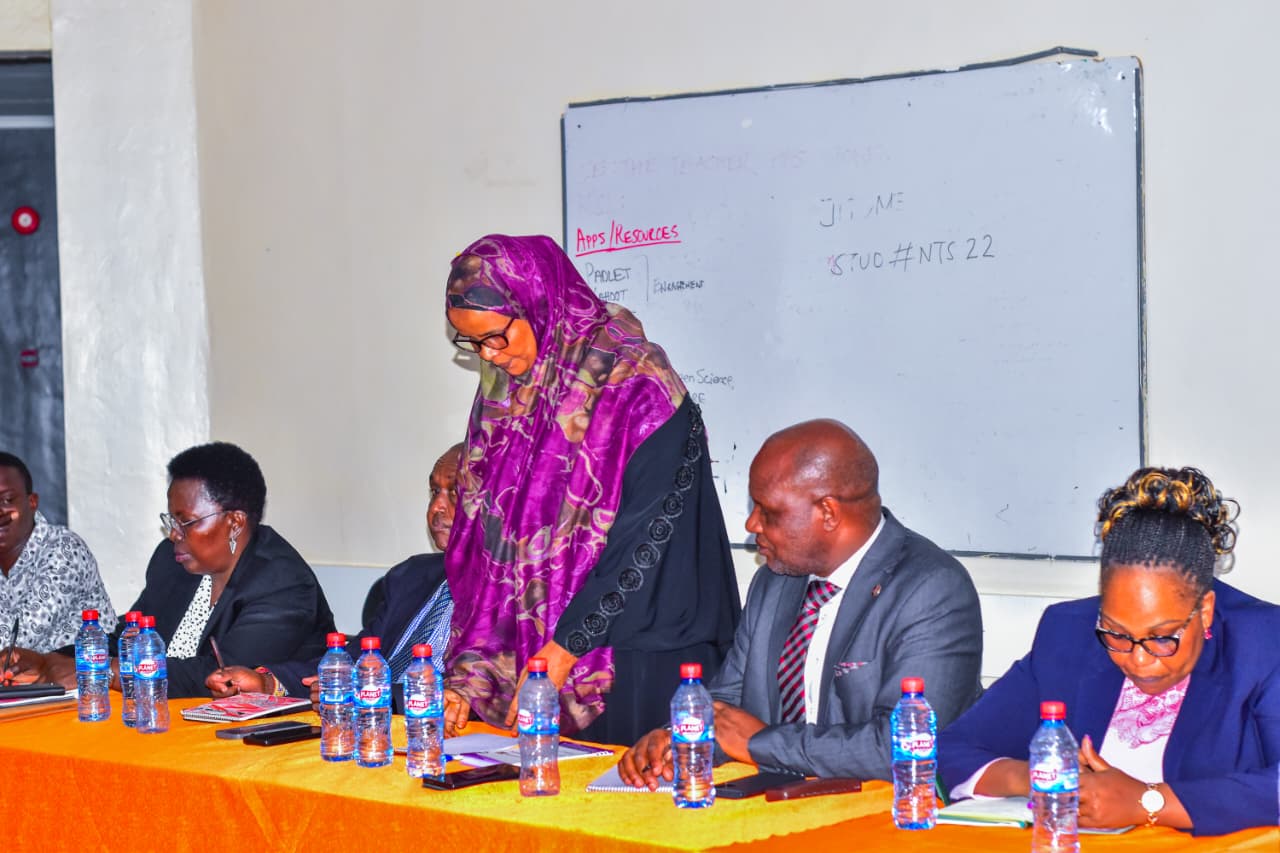The Kisumu National Polytechnic is now set to reopen its doors in phases from October 27 after almost a month of its indefinite closure following student riots.
The decision to reopen the institution was communicated by ministry officials who included Maryan Hassan, Elcana Mosiori and Priscilla Wanyiri during a consultative meeting with stakeholders and the student union leadership which was chaired by the Kisumu County Commissioner Benson Leparmorijo at the facility.
The TVET directorate Maryan Hassan however stressed that only students who will be sitting for their examinations will be readmitted.
She said the rest of the students will know their fate at a time to be communicated through the chief principal Catherine Kelonye.
Hassan told the student leadership that Kelonye still remains the college Principal despite calls to have her removed from the office.
She said grievances raised by the students are being investigated by the relevant authorities and will be tackled as time goes by, adding that some issues raised cannot be tackled by the stroke of a pen but gradually.
ALSO READ:
Teachers, transporters develop cold feet towards KNEC examination exercises in Counties
The official said they have so far found out that there were no fee hikes as claimed by the students based on the fee structure.
On the levies imposed on the students, she said the ministry was to take responsibility for allowing councils to impose them.
The official said issues such as student union welfare funds affect all colleges across the country and not the Kisumu national polytechnic alone.
Leparmorijo urged the students to pursue dialogue in demanding for certain things, cautioning them against damaging property since it amounts to a criminal act.
“School unrests have been witnessed in some parts of the county of late, and destruction of property can land one in jail.” He said
Among stakeholders present during the meeting included the national chairman of Bunge La Wanainchi Obungu Owich,the chairman of Kisumu town residents association Audi Ogada a community representative Camlus Okuom, the student body chairman Silas Adem and senior staff members.
Ogada and Owich unanimously agreed that the institution must be reopened in order to save the learners from further agony.
The institution was closed indefinitely after a whole week of unrest with students demanding that their grievances such as fee hikes be addressed.
They were subsequently sent home indefinitely following a week of run-ins with security personnel after they boycotted classes since September 15.
ALSO READ:
How Teacher Dennis Mbori is inspiring a generation of scientists in Narok
The students had accused the polytechnic authorities of hiking school fees without any prior consultations with them or their parents and guardians.
“This is going to put an extra burden on our parents and guardians who are already struggling to pay our fees in these hard economic times,” they said.
But Kelonye denied claims of fee hike, saying all decisions at the institution are only made in consultation with all stakeholders.
The students had resorted to barricading the roads passing near the institution where they engaged the police in running battles while pelting stones to the passing vehicles.
In a memo, Kelonye who is the secretary to the polytechnic council said it had become untenable to keep the students at the institution following the unrest which had disrupted a peaceful leaning environment.
“We are looking at all the issues raised by the students’ leadership and we will resolve them soon so that normal learning resume at the polytechnic,” the memo said in part.
Learning institutions in Kenya have for a long time been faced with unrest, disrupting learning programmes.
The most prevalent causes of strikes and unrests among secondary school students and other institutions of learning are; lack of student participation in decision making, lack of dialogue between authorities and students, too many powers vested on prefects, lack of democratic system in the institutions and drug abuse among students.
Experts also say that the cause of school unrest is academic pressure, particularly surrounding national examinations. It is the sole reason why many of these strikes occur during the second term, usually around mock examinations and lately, even during the third term!
By Fredrick Odiero
You can also follow our social media pages on Twitter: Education News KE and Facebook: Education News Newspaper for timely updates.
>>> Click here to stay up-to-date with trending regional stories
>>> Click here to read more informed opinions on the country’s education landscape






